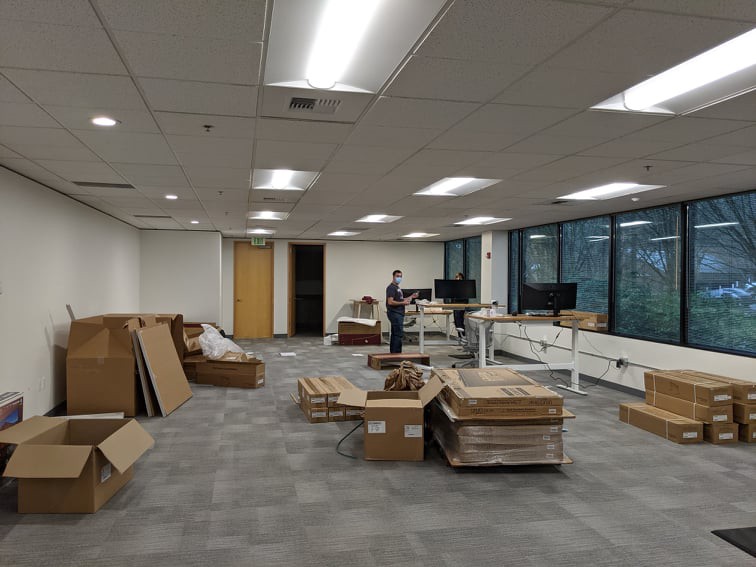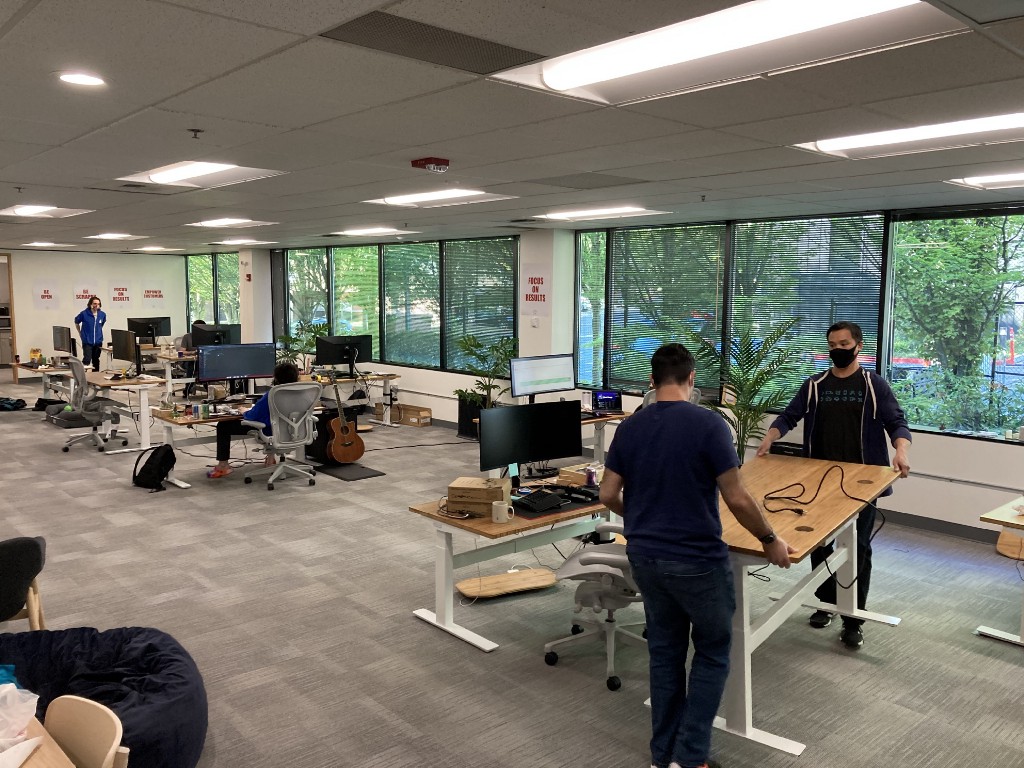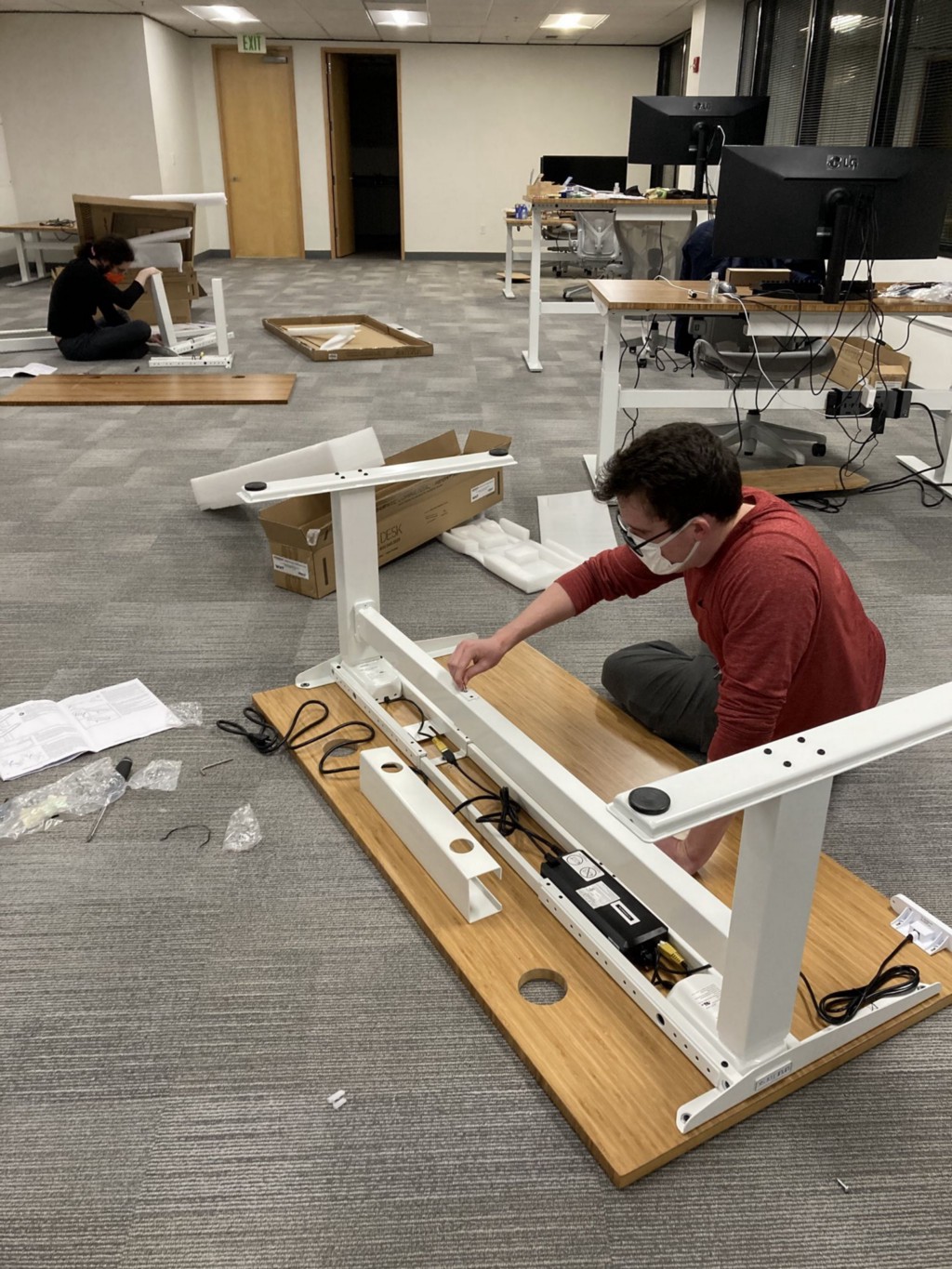
Immediately after moving into our Kirkland office, we had an empty room that needed to be filled with furniture and equipment.
This required help from everyone to pitch in and get the office ready for its first day. People helped to put up whiteboards, stock the kitchen with snacks and drinks, and assemble desks.
After building that first batch of desks, we all felt we had a pretty fun time and decided to institute this tradition of having everyone joining Statsig build a desk forward for the next member.
Obviously, there’s no profound meaning behind this practice. We’re not secretly conducting a final interview to ensure that new hires are able to read through documentation and successfully complete a task. However, there is still some value derived from this practice.
Community
As people work on constructing the desk, they’ll find that others jump onboard to offer support and help wherever possible. This kind of activity acts as a natural icebreaker, providing an opportunity to have coworkers interact with new hires as people, rather than just a coworker.
Any excuse for this kind of interaction between coworkers is invaluable. When people mutually understand each other as more than just coworkers, the cohesion of their work automatically improves. Arguments over things like “this is the priority for my team”, become discussions on how to work together to accomplish goals for both parties. Arguments over things like “this is the right way to implement this”, become discussions on how to mesh different approaches together and form a better solution. Collaboration between people and team members is significantly simpler when there’s mutual respect, and getting to know your team is a simple way to form that respect.

Sense of ownership
In any company, especially a startup, the company can only succeed if its employees believe in its mission and practices. Something as simple as using a desk specifically built for you by coworkers produces a tie of ownership directly to the company and gives a slight push towards caring more for the work that is produced.
Those that care about the success of the company will go out of their way to do what’s right for the company, rather than just following one’s work obligations. These actions range from directly fixing bugs in the product they observe rather than filing tickets and hoping they get fixed, to picking up trash they find on the office floor instead of waiting for the janitor to clean everyone’s messes. What needs to get done, needs to get done.

Are there any traditions you’ve created or observed in your company? Please share below!